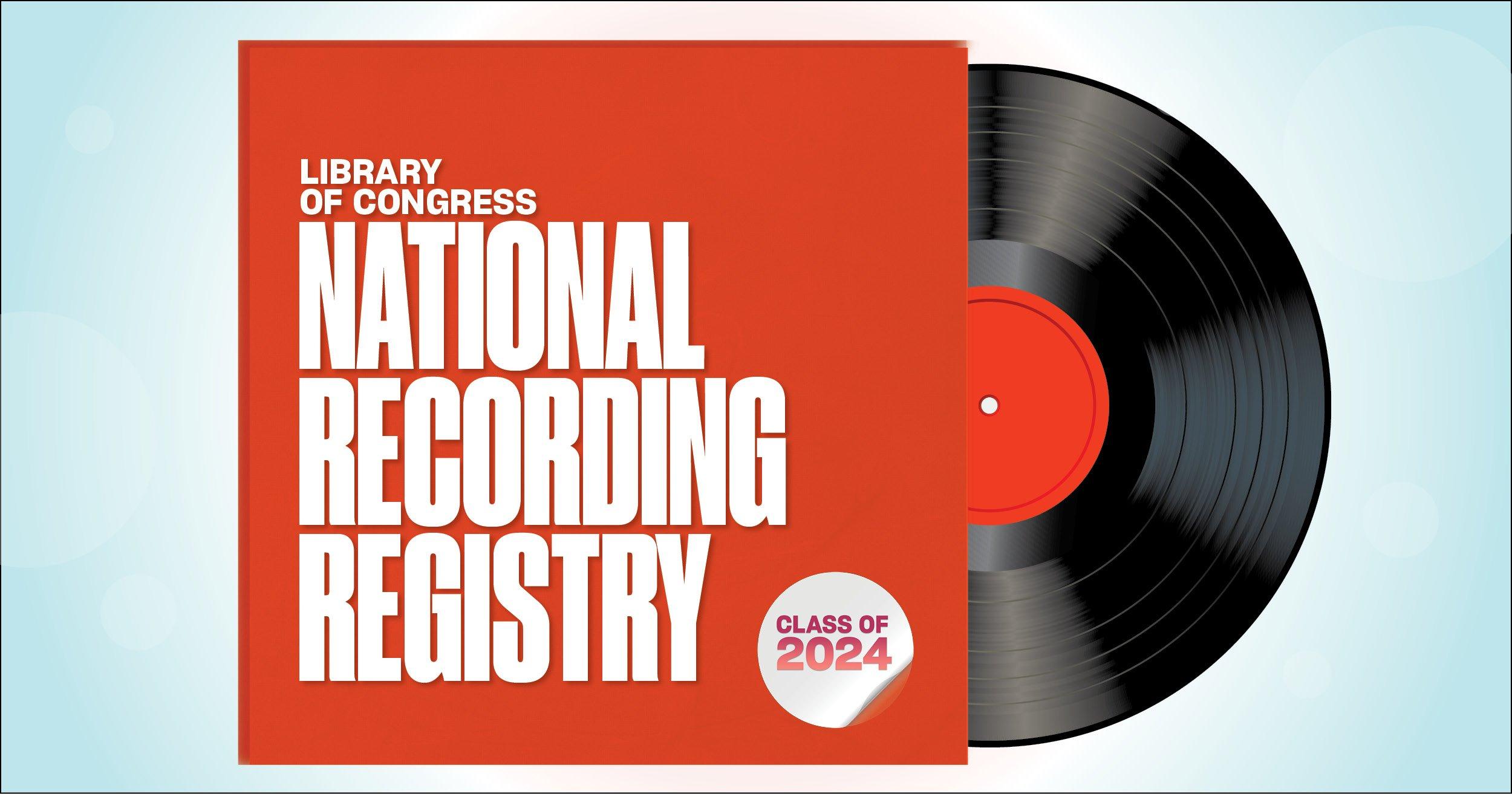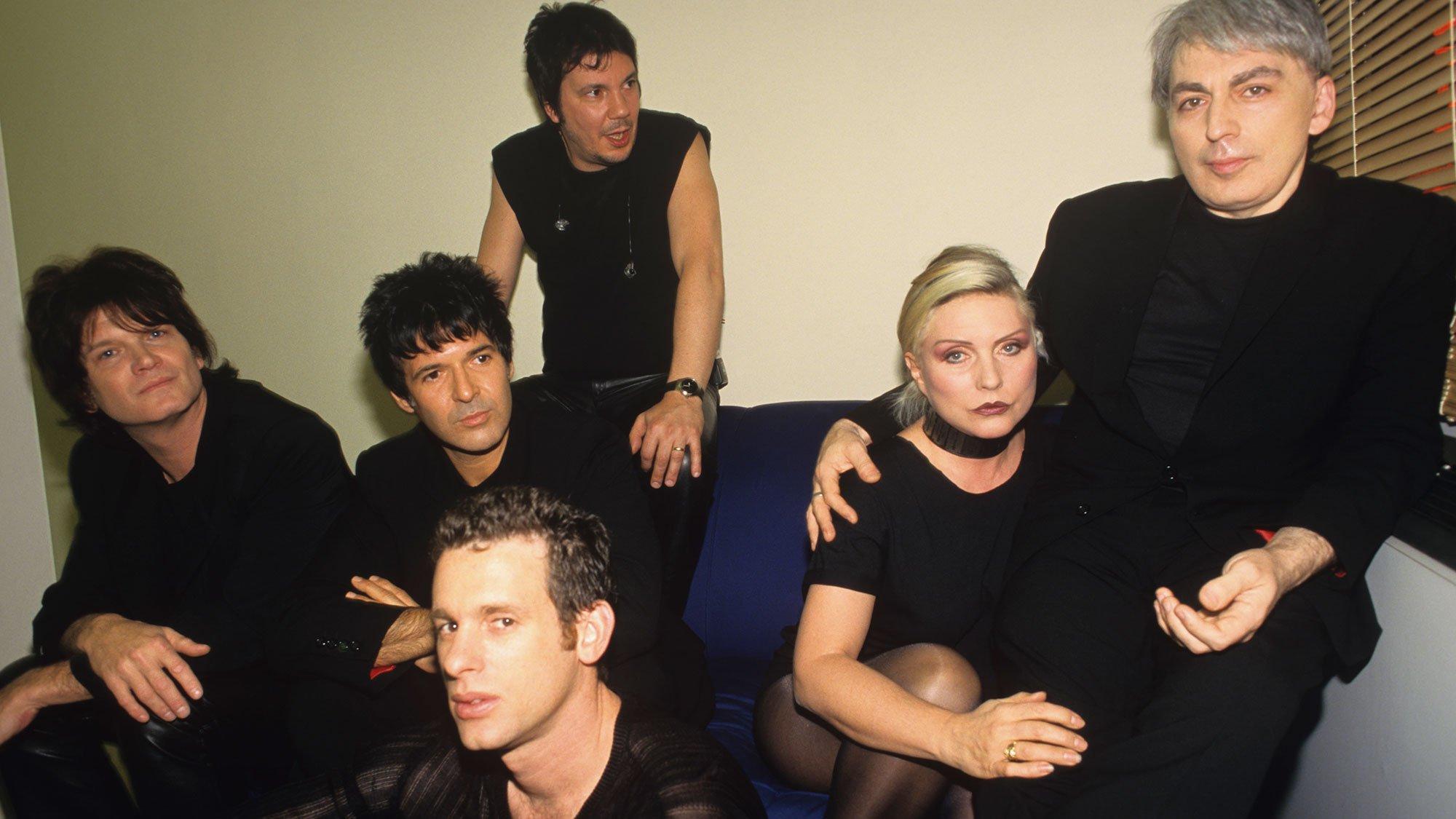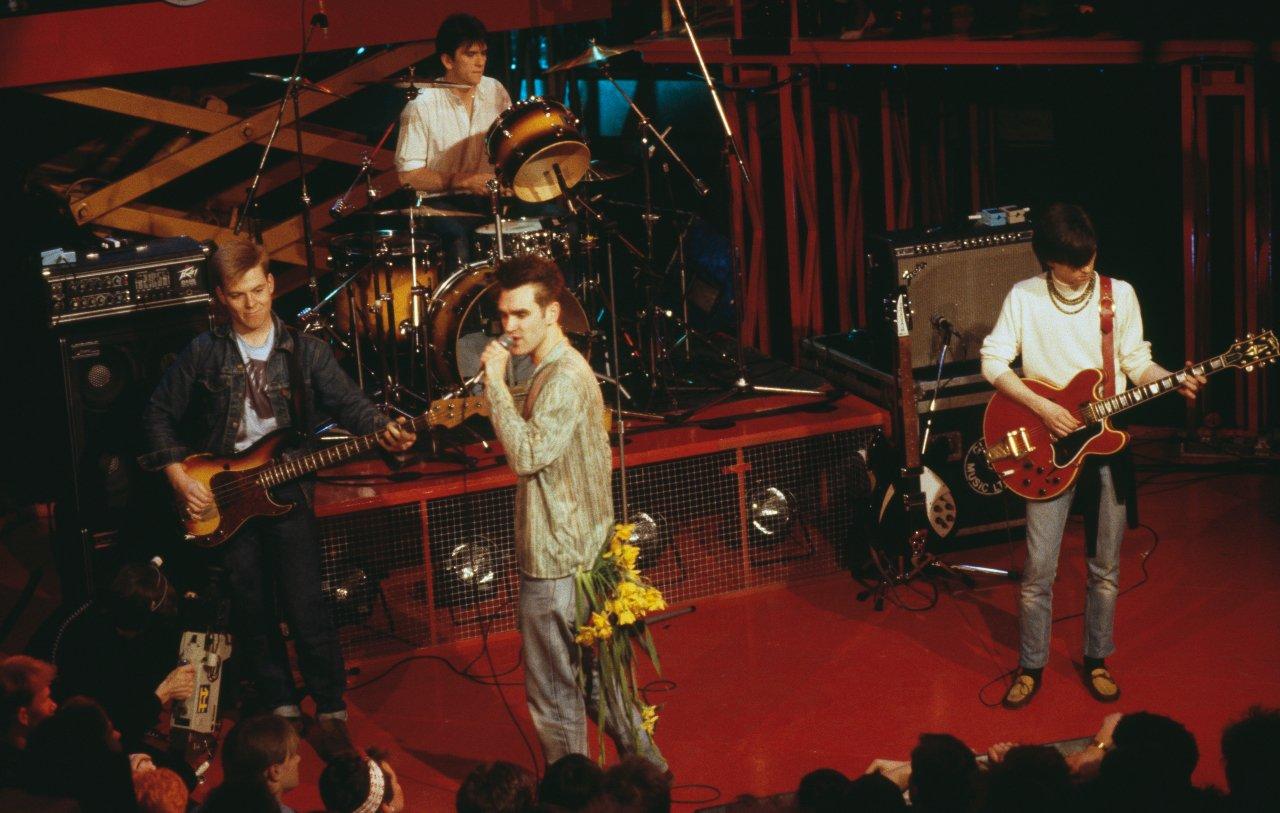Photo: Gabriel Olsen/FilmMagic via Getty Images

Morrissey
news
Morrissey, Bauhaus, Blondie, Devo & More To Play Cruel World Fest
The new Los Angeles music festival will also feature Echo & The Bunnymen, the Violent Femmes, The Psychedelic Furs and Gary Newman
A new Los Angeles festival has been announced and the lineup is an '80s music lover's dream. The Cruel World Festival will feature Morrissey, Blondie, Bauhaus, Devo and others.
The one-day fest will take place at the Grounds at Dignity Health Sports Park on May 2.
Other acts include Echo & The Bunnymen, the Violent Femmes, the newly reunited Psychedelic Furs and Gary Newman.
Presale starts Thursday, Feb. 13. For more information, visit the Cruel World Fest website.
Got To Keep On Movin': How Matthew Wilder's '80s Deep Cut "Break My Stride" Broke TikTok

Photo: Library of Congress
news
National Recording Registry Inducts Music From The Notorious B.I.G., Green Day, Blondie, The Chicks, & More
Recordings by the Cars, Bill Withers, Lily Tomlin, Doug E. Fresh and Slick Rick, and the all-Black 369th U.S. Infantry Band after World War I are also among the 25 selected for induction.
As a founding member of the National Recording Preservation Board, the Recording Academy was instrumental in lobbying and getting the board created by Congress. Now, the Library of Congress has added new treasures to the National Recording Registry, preserving masterpieces that have shaped American culture.
The 2024 class not only celebrates modern icons like Green Day’s punk classic Dookie and Biggie Smalls' seminal Ready to Die, but also honors vintage gems like Gene Autry’s "Rudolph, the Red-Nosed Reindeer" and Perry Como’s hits from 1957. These recordings join over 650 titles that constitute the registry — a curated collection housed within the Library’s vast archive of nearly 4 million sound recordings.
Librarian of Congress Carla Hayden announced these additions as essential pieces of our nation’s audio legacy, each selected for their cultural, historical, or aesthetic importance. This selection process is influenced by public nominations, which hit a record number this year, emphasizing the public's role in preserving audio history.
Read more: Inside Green Day's Intimate "Right Here, Right Now" Global Climate Concert In San Francisco
"The Library of Congress is proud to preserve the sounds of American history and our diverse culture through the National Recording Registry," Hayden said. "We have selected audio treasures worthy of preservation with our partners this year, including a wide range of music from the past 100 years, as well as comedy. We were thrilled to receive a record number of public nominations, and we welcome the public’s input on what we should preserve next."
The latest selections named to the registry span from 1919 to 1998 and range from the recordings of the all-Black 369th U.S. Infantry Band led by James Reese Europe after World War I, to defining sounds of jazz and bluegrass, and iconic recordings from pop, dance, country, rock, rap, Latin and classical music.
"For the past 21 years the National Recording Preservation Board has provided musical expertise, historical perspective and deep knowledge of recorded sound to assist the Librarian in choosing landmark recordings to be inducted into the Library’s National Recording Registry," said Robbin Ahrold, Chair of the National Recording Preservation Board. "The board again this year is pleased to join the Librarian in highlighting influential works in our diverse sound heritage, as well as helping to spread the word on the National Recording Registry through their own social media and streaming media Campaigns."
Tune in to NPR's "1A" for "The Sounds of America" series, featuring interviews with Hayden and selected artists, to hear stories behind this year’s picks. Stay connected to the conversation about the registry via social media and listen to many of the recordings on your favorite streaming service.
For more details on the National Recording Registry and to explore more about the selections, visit The Library of Congress's official National Recording Registry page.
National Recording Registry, 2024 Selections (chronological order)
"Clarinet Marmalade" – Lt. James Reese Europe’s 369th U.S. Infantry Band (1919)
"Kauhavan Polkka" – Viola Turpeinen and John Rosendahl (1928)
Wisconsin Folksong Collection (1937-1946)
"Rose Room" – Benny Goodman Sextet with Charlie Christian (1939)
"Rudolph, the Red-Nosed Reindeer" – Gene Autry (1949)
"Tennessee Waltz" – Patti Page (1950)
"Rocket ‘88’" – Jackie Brenston and His Delta Cats (1951)
"Catch a Falling Star" / "Magic Moments" – Perry Como (1957)
"Chances Are" – Johnny Mathis (1957)
"The Sidewinder" – Lee Morgan (1964)
"Surrealistic Pillow" – Jefferson Airplane (1967)
"Ain’t No Sunshine" – Bill Withers (1971)
"This is a Recording" – Lily Tomlin (1971)
"J.D. Crowe & the New South" – J.D. Crowe & the New South (1975)
"Arrival" – ABBA (1976)
"El Cantante" – Héctor Lavoe (1978)
"The Cars" – The Cars (1978)
"Parallel Lines" – Blondie (1978)
"La-Di-Da-Di" – Doug E. Fresh and Slick Rick (MC Ricky D) (1985)
"Don’t Worry, Be Happy" – Bobby McFerrin (1988)
"Amor Eterno" – Juan Gabriel (1990)
"Pieces of Africa" – Kronos Quartet (1992)
Dookie – Green Day (1994)
Ready to Die – The Notorious B.I.G. (1994)
"Wide Open Spaces" – The Chicks (1998)
21 Albums Turning 50 In 2024: 'Diamond Dogs,' 'Jolene,' 'Natty Dread' & More

Photo: Patrick Ford/Redferns/GettyImages
feature
25 Years Later, 'No Exit' Shows Blondie Galvanizing Its Identity
Released in 1999 after a 15-year hiatus, Blondie's 'No Exit' was more than a reunion album. The edgy, eclectic and innovative album pulled Blondie back from the brink of history and into a new millennium.
"We felt there was no exit from Blondie," Clem Burke, long-standing drummer of Blondie, said in 1999.
Burke was speaking on the occasion of Blondie's new record, aptly titled No Exit. At the time, the band had reunited after a 15-year absence and, according to Burke, "reared its head again, a four-headed monster."
Although Burke jested about being unable to shake the pull of the band, No Exit was an edgy, eclectic and innovative record that pulled Blondie back from the brink of history and into a new millennium. The 17-track album saw the band restart their musical mission, delivering genre-blending punk music that brought experimental sounds to the mainstream while also parodying Americana. The reckless abandon shown with No Exit — from music genres to public image — proved a direct through-line to their peak new wave output.
No Exit was certainly a long time coming. The idea of a "reunion" for the famed band was never in the cards; even the idea of a greatest hits record was a no-go.After the release of 1982’s The Hunter — an album that fared poorly with critics and achieved little impact on the charts — the group chose to disband. Co-founder Chris Stein was diagnosed with an autoimmune disease and took time away from music; lead singer Debbie Harry began caring for partner Stein while also pursuing a solo music career and acting opportunities (including John Waters’ Hairspray); Burke went on to play drums for the likes of the Romantics and Iggy Pop; keyboardist Jimmy Destri began producing music for Prince and INXS.
A true reunion had to involve new music and a relaunch too. Stein recalled watching Jerry Maguire for the first time while recording No Exit in 1998. "I got all teary-eyed because the movie’s all about getting a second chance," he told the L.A. Times. "And that’s what this is about, you know? We’re getting a second chance."
Released on Feb. 23, 1999, No Exit was an energetic and eclectic mix of classic Blondie genres — pop and rock, reggae and rap — that pitched the band to a generation. No Exit eased the band back into a musical landscape dominated by rhythmic hip-hop tracks, velvet R&B anthems and thumping heavy metal.
Audiences at the dawn of the new millennium were already enjoying the success of other girl-fronted rock ensembles; groups like No Doubt, Garbage, and the Cranberries owed Blondie and Harry some credit for trailblazing. (Even if being a female-fronted band became a thorn in Blondie’s side, as seen by their 1978 "campaign" to correct the record with "Blondie is a group!" buttons.)
Now returning to the charts with such peers, Blondie signaled to the world their assignment was never over — even aging rockers could challenge music conventions and be punk again. Harry was center stage once more, reviving the band’s famed part-parody and part-femme fatale blond bombshell image for a new audience (and Blondie diehards).
Lead track "Maria" — a spirited song about romantic desire that also plays on religious idol worship — wasn’t quite classic Blondie but a sweet pop treat The song
hit No. 1 on the U.K. charts and also topped charts in Spain and Poland. Blondie were officially back in action, but their status left Stein a bit uneasy. "Now we were on the receiving end of a lot of accolades. At times it felt odd being hit with all the ‘legendary’ labels," Stein writes in his upcoming memoir, Under a Rock.
But it was no small feat to get Blondie back together. When they disbanded in 1982, they acknowledged that it was a "madhouse," with endless fighting and arguments all while Stein began to deteriorate from his chronic illness. While the band had sold more than 40 million albums in their decade-plus together and cemented themselves in the cultural lexicon, a new question emerged: Would their formerly edgy and eclectic sound resonate again?
Part of the band’s advantage in 1999 was also their original musical hallmark: a lack of a loyalty to any singular genre.
No Exit embraced Blondie’s classic musical eclecticism — a quality that saw some critics deride the record. An "album of hollow new-wave, ska, and rap retreads," Entertainment Weekly opined while Rolling Stone argued it "indulge[d] in the kind of dilettantish genre dabbling that preceded their 1982 demise." But Blondie’s uniqueness was always that their music output resisted easy classification; it wouldn’t be Blondie without any genre experimentation.
While looking back was important for the band when recording No Exit, it was also key to finding ways to appeal to a new generation of listeners. "We’re part of the future as well as the past," Harry said in 1999. "One of the stipulations I had was that it not be just a revue of Blondie’s greatest hits. I really felt convinced of and dedicated to the idea that we had to move ahead and do new music." That also extended to playfully redoing tracks they had originally recorded in the 1970s, including the Sangri-Las’ "Out in the Street."
Other songs on No Exit showed a playful and wry tenor, as the four original members were seemingly having fun reconnecting with each other. "Forgive and Forget (Pull Down the Night)" is a smooth and synthy dance track that recalls the Pet Shop Boys and gestures at forgiving past transgressions. Blondie cosplays as a country ensemble on "The Dream’s Lost on Me" with a structured and rhythmic country ballad that elevates Harry’s vocals. "Screaming Skin" takes their past reggae influences and recasts them in a rapid-fire rock song about breaking the betrayal of one’s body (likely a reference to Stein’s pemphigus condition attacking his skin).
Touring No Exit also fermented worries about Blondie’s legacy. "I don’t wanna appear preposterous on stage," Harry said at the time. In an attempt to defy such expectations, Blondie chose to perform the album’s hip-hop influenced title track during the American Music Awards, even bringing Coolio onstage.
The performance was true Blondie, which had long collaborated with artists of other genres to appeal to new audiences (their "Rapture" featuring Fab Five Freddy being case in point). "I was pleased with the mixed reaction," Stein said after the AMAs. "I’d much rather have us do something controversial than safe."
Today, "No Exit" might sound like a jarring marriage between classical music — with its use of Bach’s "Toccata and Fugue in D minor" — and thumping modern rap, but it isn’t a serious sonic exercise. Blondie instead impishly reminds us of the endless loop ("no exit") of their past music and the music industry, as their famed tunes might as well be as dated as those of the baroque era. The band goes philosophical with the reboot — even nodding to Jean-Paul Sartre’s bleak existential play No Exit — but conversely finds freedom adopting this adage.
The 1999 regrouping netted Blondie chart success, new fandom, and a world tour. Yet it also brought up some personal problems. In Under a Rock, Stein admitted he was trying to gradually decrease his use of methadone, but touring demands made recovery difficult.
Still, Blondie’s return helped galvanize their popular image as enduring punk and new wave pioneers. (It might not be surprising that no Blondie album since has charted as high as No Exit at No. 18 in the U.S. and No. 3 in the U.K.) The band hasn’t pumped the brakes either, riding the renewed popularity for decades since with new music and tours of the world over.
But No Exit offered audiences something that their four following albums haven't achieved: a cutting and experimental sound that also acknowledged the artifice of the pop rock music they were making. Even recent successes like 2017’s Pollinator sounded fun and youthful, but were a largely series of songs written or co-written by other artists that aimed to appease current pop music tastes.
The album title might sound suffocating or even nihilistic, but to Blondie No Exit was a belated self-acceptance. "I mean, there is no exit," Harry commented to journalist Michael Hill in 2013. "You work so hard to establish something, and then that’s it, there you are."
Twenty-five years on, Blondie showed a dawning new millennium who they were: A punk band who embraced sounds with abandon while celebrating the fantasy of being dissent rock stars. Like reading a sign "last exit before freeway," Blondie saw No Exit as a moment to hit the gas and drive straight on through.
'The Smiths' At 40: How The Self-Titled Debut Fired An Opening Shot For Indie Rock

Photo: Pete Cronin/Redferns/Getty Images
feature
'The Smiths' At 40: How The Self-Titled Debut Fired An Opening Shot For Indie Rock
Released in 1984, the Smiths' self-titled debut showed that morose-yet-melodic Mancunians arrived fully formed — and laid the blueprint for decades of jangly, left-of-center visionaries.
In the annals of rock history, how many artists seem to foreshadow all of indie, in some way? One was Buddy Holly; from the glasses to the Strat to the attitude, his short career was like a split atom that produced nuclear fission. And, arguably, there was one other: the Smiths.
Their fey, idiosyncratic and devastatingly witty frontman, Morrissey — born Steven Patrick Morrissey — was fully himself right out of the box. From his baritone voice to his ambiguous sexuality, Moz set the prototype of unconventional, underdog frontmen for good.
His foil, Johnny Marr, played resplendent jangle guitar, with harmonic shades of light and shadow that played off Morrissey's sweet-and-sour musings. Their perennially underrated bassist, Andy Rourke, was supple and tensile. And rock-solid drummer Mike Joyce provided the tasteful foundation, with anthemic flourishes in his fills that made the tunes pop.
The world was introduced to the Smiths via, well, The Smiths — their debut album, released on Feb. 20, 1984 via Rough Trade Records.
Across their four-album discography — plus some must-have compilations, like Hatful of Hollow and Louder Than Bombs — the Manchester-based group would develop in a very short time — and split apart in short order, in 1987. But if, on Feb. 21, 1984, a double-decker bus crashed into the foursome, their role in rock history would still be ironclad.
From the gorgeous, sprawling "Reel Around the Fountain" to the sexually palpitating "This Charming Man" to the stony-yet-sparkling "What Difference Does It Make?", The Smiths paved the way for the Stone Roses, Radiohead, Oasis, and so many more Brits with a way with melody and a screw loose.
And their literary inspirations, melancholia and navel gazing also inspired a generation of emo and goth groups — including acts on the other side of the pond, like the National, Ryan Adams, Billie Eilish, and Low.
How did they accomplish this? Partly due to their visual aesthetic — simple, striking typography, against grayscale photography of anonymous figures, typically men. (Take a spin through Belle and Sebastian's discography, and you tell us whether they were influenced.)
The cover of The Smiths depicts gay sex symbol Joe Dallesandro; he's topless and a curtain of hair obscuring his face; his extremities are cut off by the camera, Venus de Milo-style. The image speaks to both the play with sex and gender in the lyrics, and the band's quotidian personae.
Despite its subject, the cover of The Smiths doesn't scream starpower; it looks ripped out of a moldering magazine. Which completely jibes with the music — glimmering yet murky, seemingly anti-produced in places. That vibe was the point from the beginning — hence their band name.
"It was the most ordinary name," Morrissey once said, "and I thought it was time that the ordinary folk of the world showed their faces." And throughout The Smiths, Moz sings about those ordinary folk — their traumas, their abuses, their sexual hangups.
The Smiths being the Smiths, well, it got dark. The gently unspooling opener "Reel Around the Fountain" is about a sexual experience with an older partner; tabloids wondered aloud if it was about pedophilia. "The Hand That Rocks the Cradle" connotes child murder. To say nothing of the knife-twisting closer "Suffer Little Children."
But despite their critical reputation as "miserablists," it's not all pitch-black. "Still Ill" addresses the decriminalization of gay sex in the United Kingdom — an early glimmer of political consciousness for the band that would go on to make Meat is Murder. And the gorgeous "Hand in Glove" — with haunting harmonica blowing through it — is about love slipping away, with a queer tint.
What also makes The Smiths resonate? Partly what they didn't do. In the most synth-choked era of pop/rock, at the tail end of the UK's new romantic movement, The Smiths' guitar-bass-drums starkness was like bare brick against gaudy wallpaper.
Unincumbered by overwrought sonic trappings, the Smiths' hilarious, harrowing vignettes stick with you from the first listen. Clearly, that unadorned aural aesthetic stuck for decades, with numberless acts — and to a great degree, you can thank Moz and company.
So many terrific artists take a few records to become themselves, but not the Smiths. No, with their classic debut, you get everything now — including the ocean of indie in its wake.

Photo: Jeff Kravitz/FilmMagic
video
GRAMMY Rewind: Kendrick Lamar Honors Hip-Hop's Greats While Accepting Best Rap Album GRAMMY For 'To Pimp a Butterfly' In 2016
Upon winning the GRAMMY for Best Rap Album for 'To Pimp a Butterfly,' Kendrick Lamar thanked those that helped him get to the stage, and the artists that blazed the trail for him.
Updated Friday Oct. 13, 2023 to include info about Kendrick Lamar's most recent GRAMMY wins, as of the 2023 GRAMMYs.
A GRAMMY veteran these days, Kendrick Lamar has won 17 GRAMMYs and has received 47 GRAMMY nominations overall. A sizable chunk of his trophies came from the 58th annual GRAMMY Awards in 2016, when he walked away with five — including his first-ever win in the Best Rap Album category.
This installment of GRAMMY Rewind turns back the clock to 2016, revisiting Lamar's acceptance speech upon winning Best Rap Album for To Pimp A Butterfly. Though Lamar was alone on stage, he made it clear that he wouldn't be at the top of his game without the help of a broad support system.
"First off, all glory to God, that's for sure," he said, kicking off a speech that went on to thank his parents, who he described as his "those who gave me the responsibility of knowing, of accepting the good with the bad."
Looking for more GRAMMYs news? The 2024 GRAMMY nominations are here!
He also extended his love and gratitude to his fiancée, Whitney Alford, and shouted out his Top Dawg Entertainment labelmates. Lamar specifically praised Top Dawg's CEO, Anthony Tiffith, for finding and developing raw talent that might not otherwise get the chance to pursue their musical dreams.
"We'd never forget that: Taking these kids out of the projects, out of Compton, and putting them right here on this stage, to be the best that they can be," Lamar — a Compton native himself — continued, leading into an impassioned conclusion spotlighting some of the cornerstone rap albums that came before To Pimp a Butterfly.
"Hip-hop. Ice Cube. This is for hip-hop," he said. "This is for Snoop Dogg, Doggystyle. This is for Illmatic, this is for Nas. We will live forever. Believe that."
To Pimp a Butterfly singles "Alright" and "These Walls" earned Lamar three more GRAMMYs that night, the former winning Best Rap Performance and Best Rap Song and the latter taking Best Rap/Sung Collaboration (the song features Bilal, Anna Wise and Thundercat). He also won Best Music Video for the remix of Taylor Swift's "Bad Blood."
Lamar has since won Best Rap Album two more times, taking home the golden gramophone in 2018 for his blockbuster LP DAMN., and in 2023 for his bold fifth album, Mr. Morale & the Big Steppers.
Watch Lamar's full acceptance speech above, and check back at GRAMMY.com every Friday for more GRAMMY Rewind episodes.
10 Essential Facts To Know About GRAMMY-Winning Rapper J. Cole
